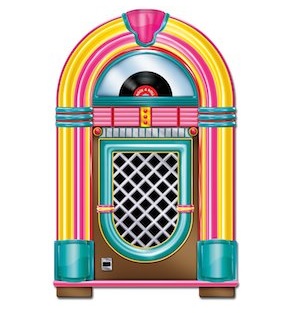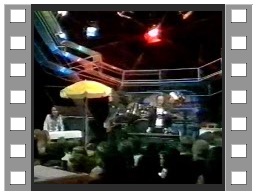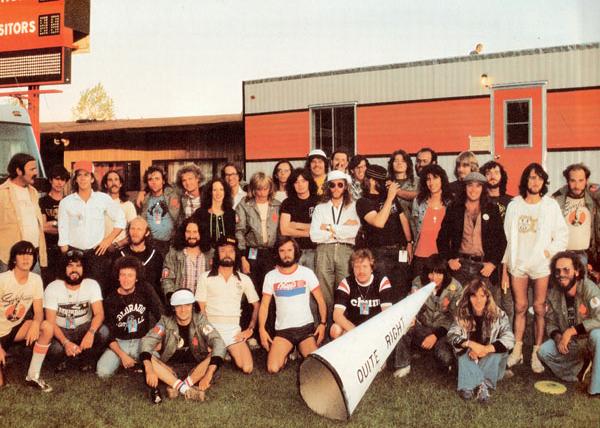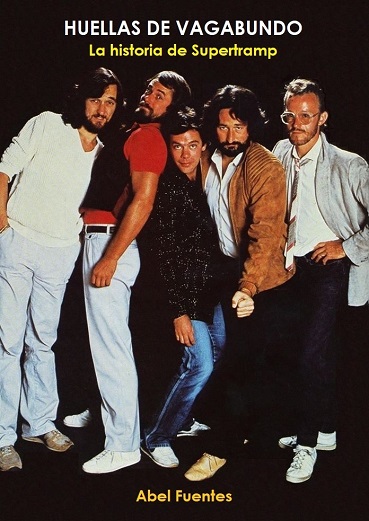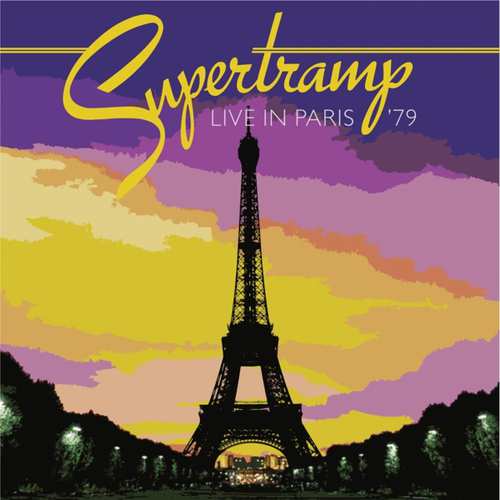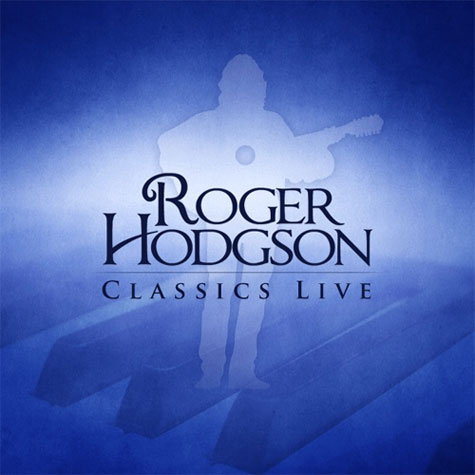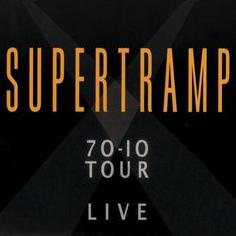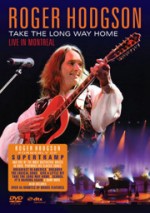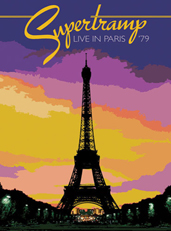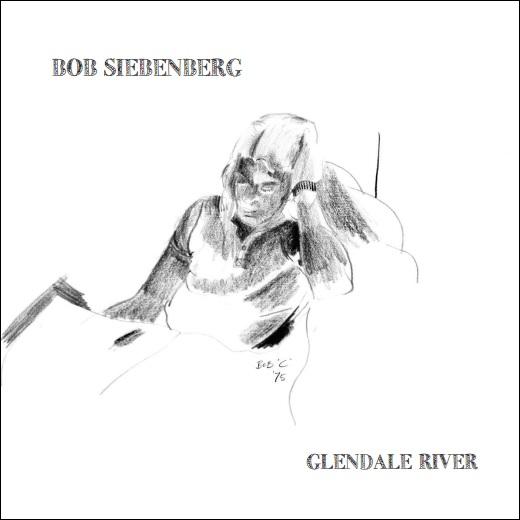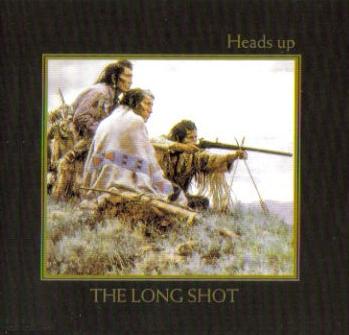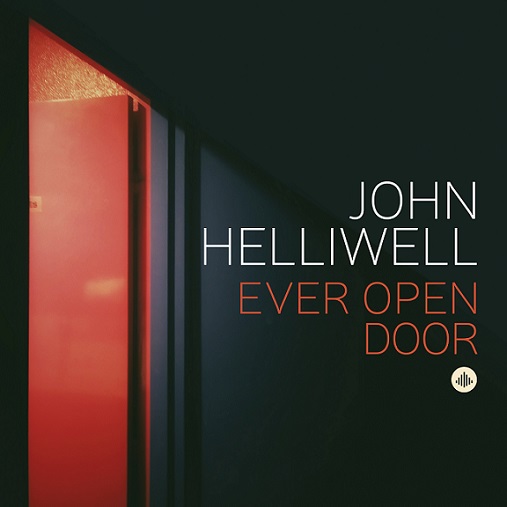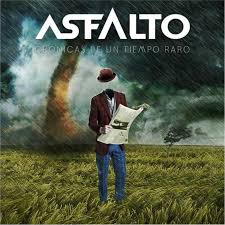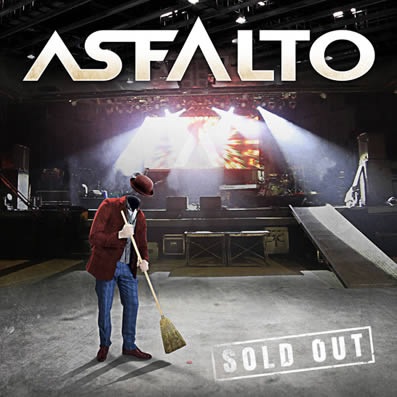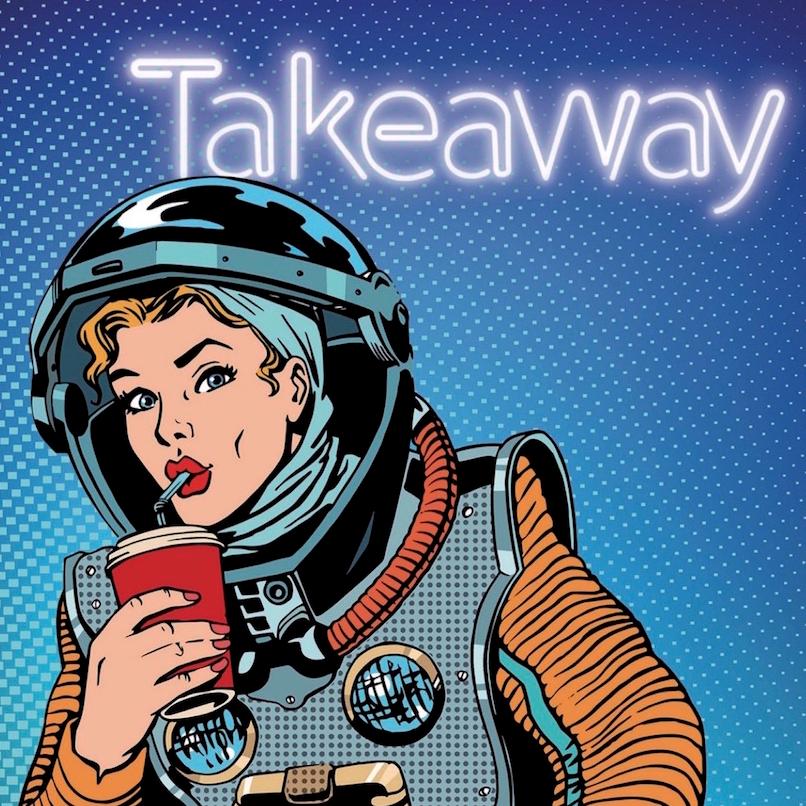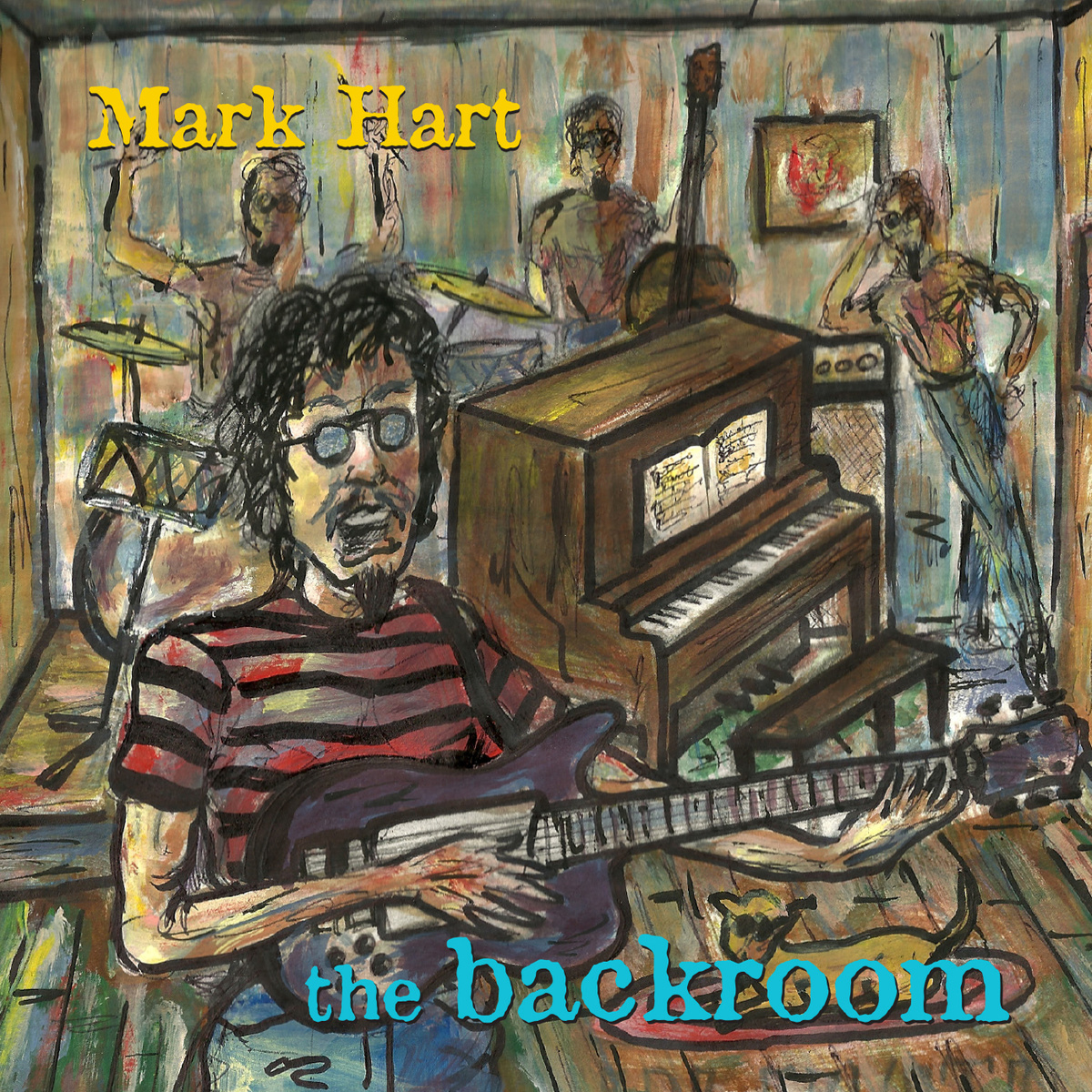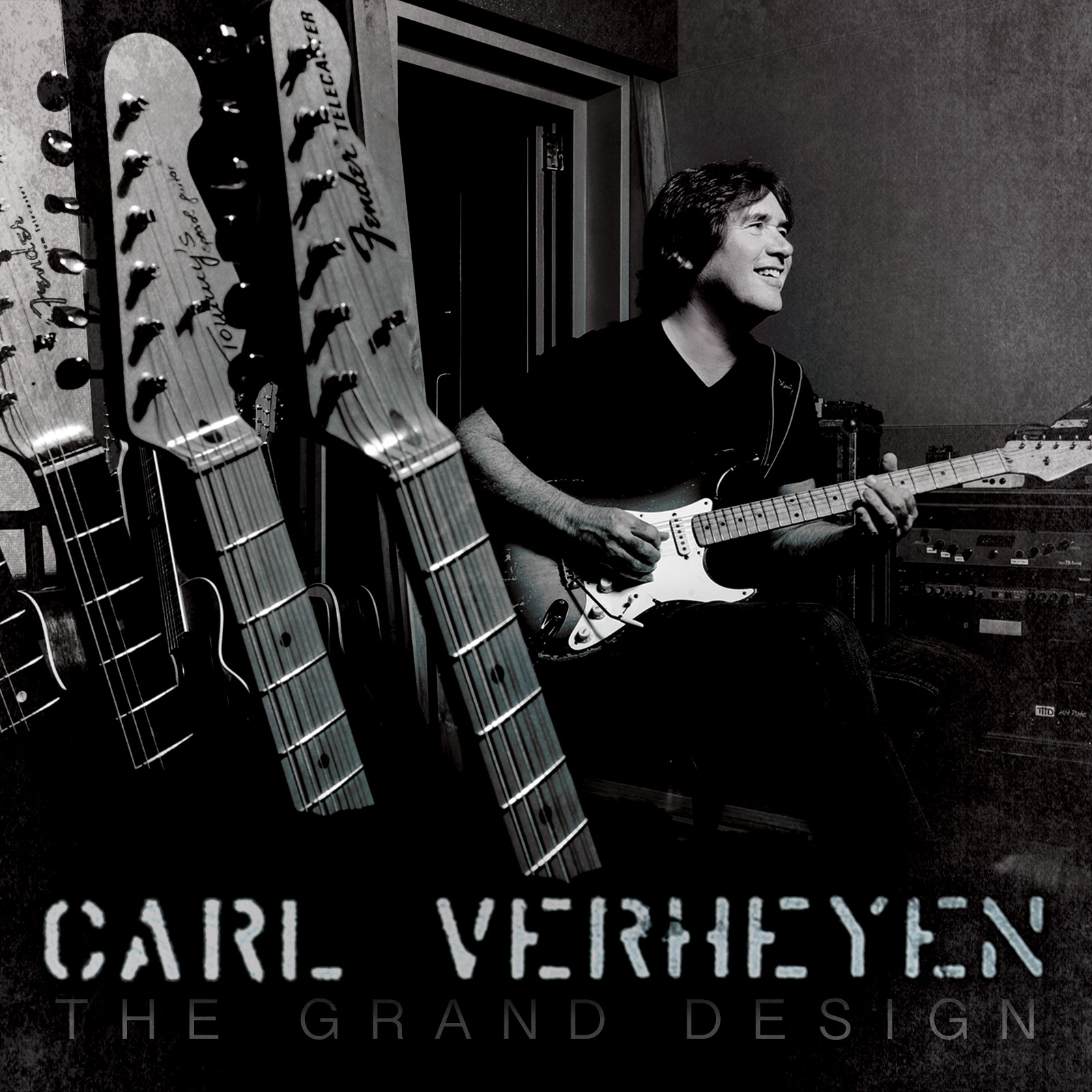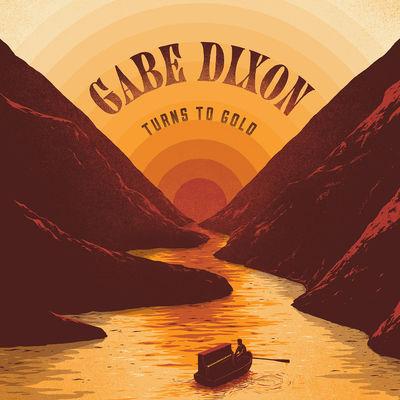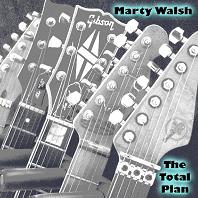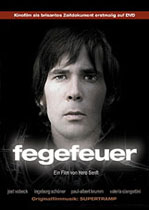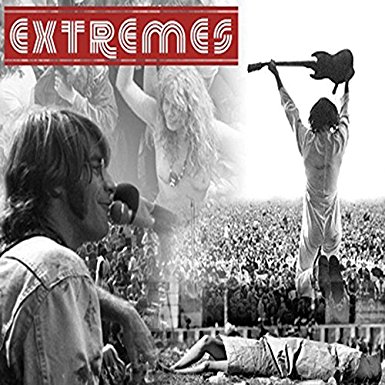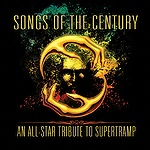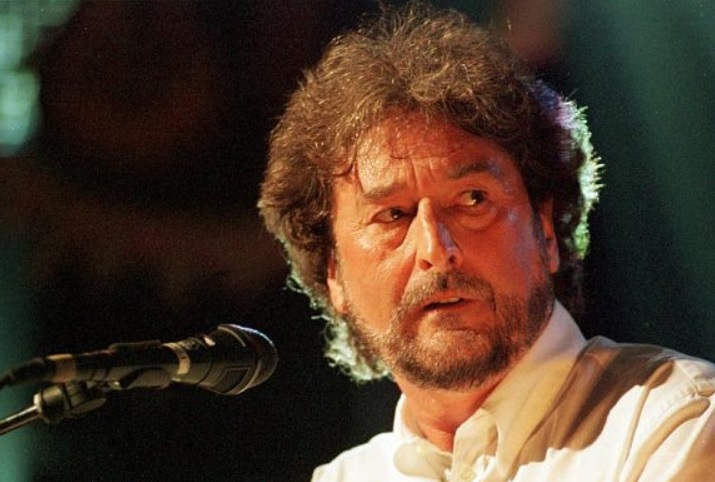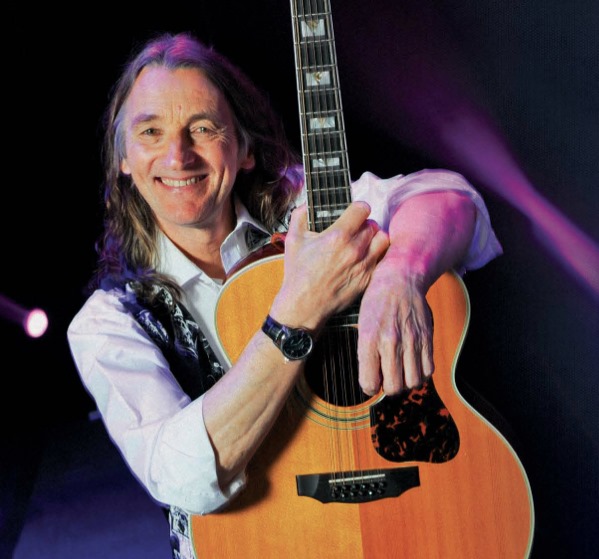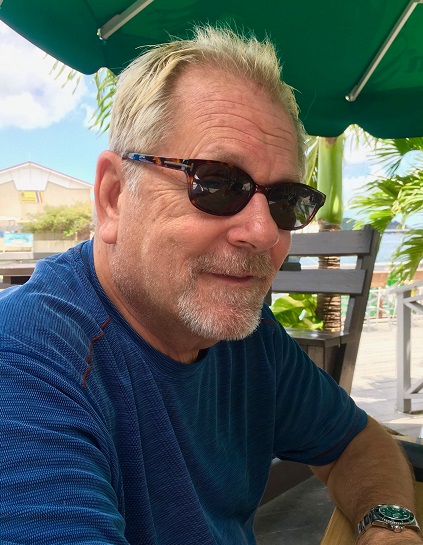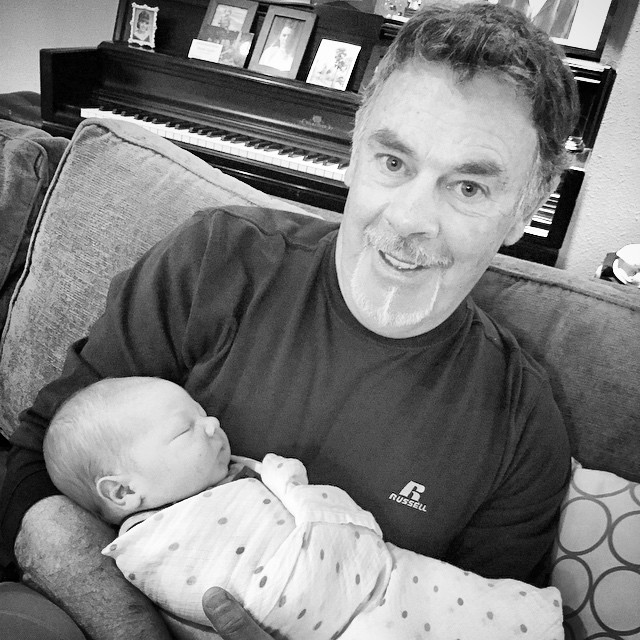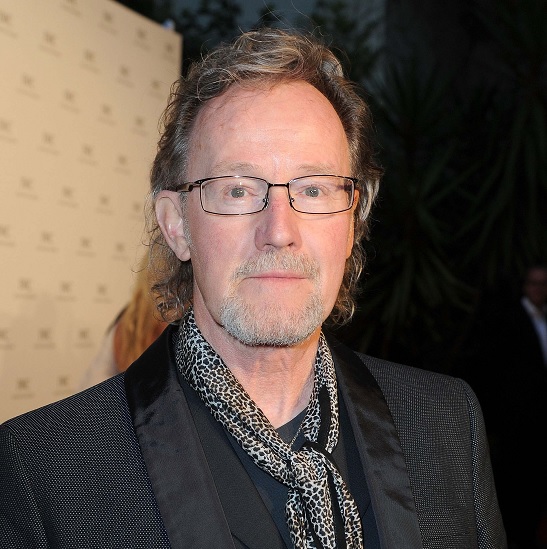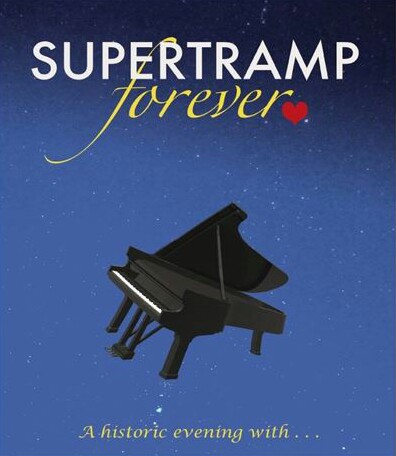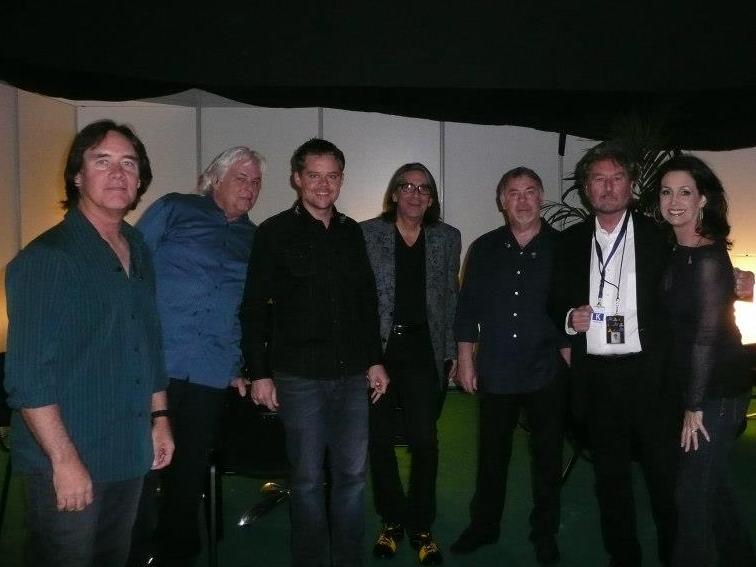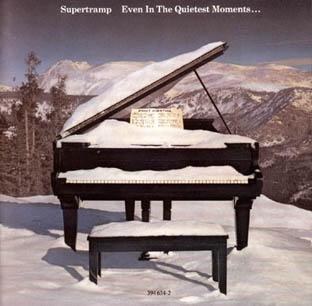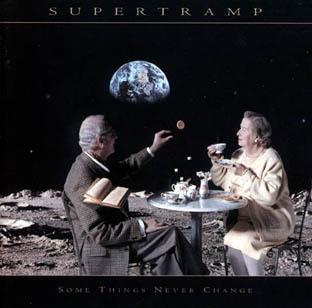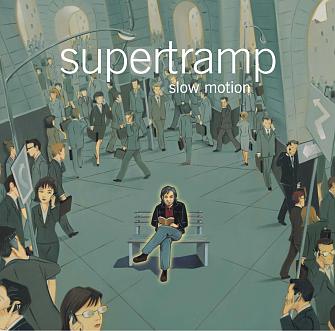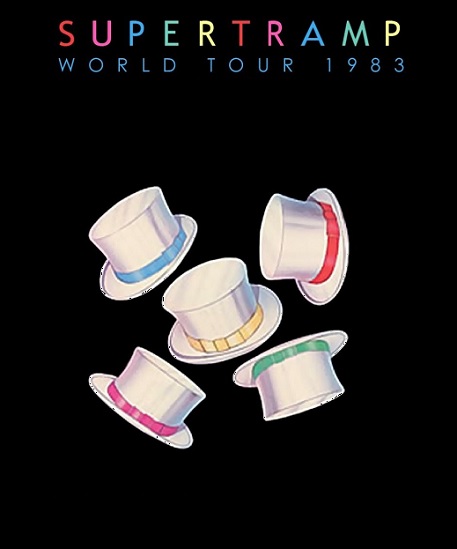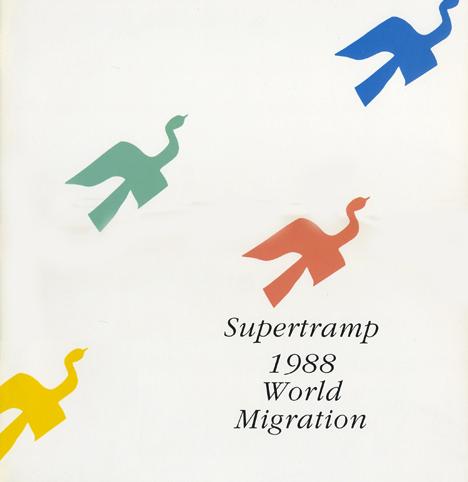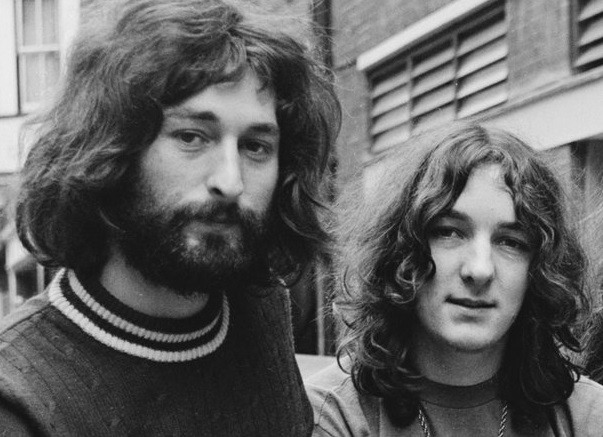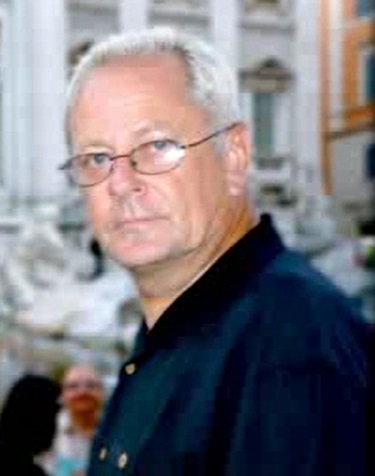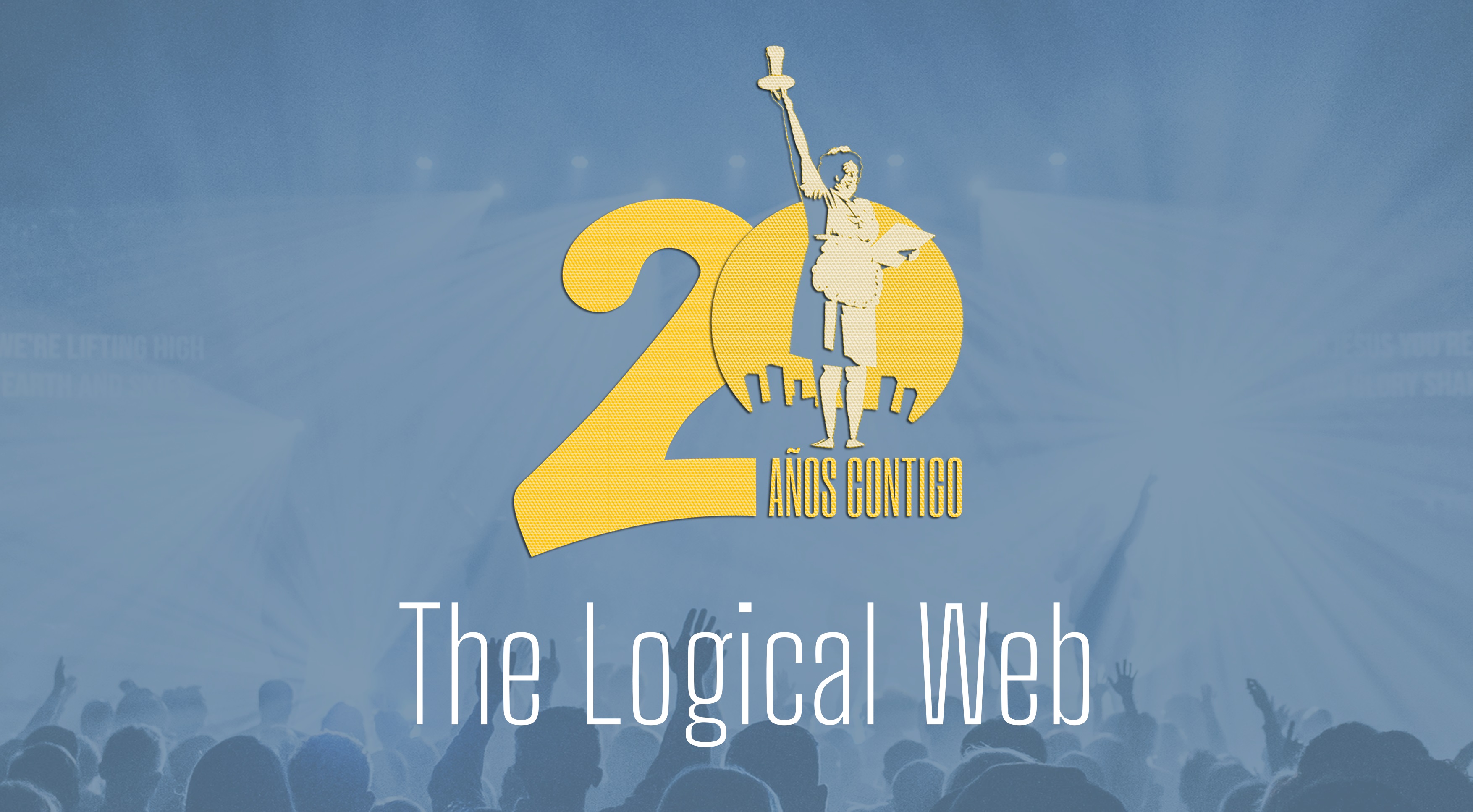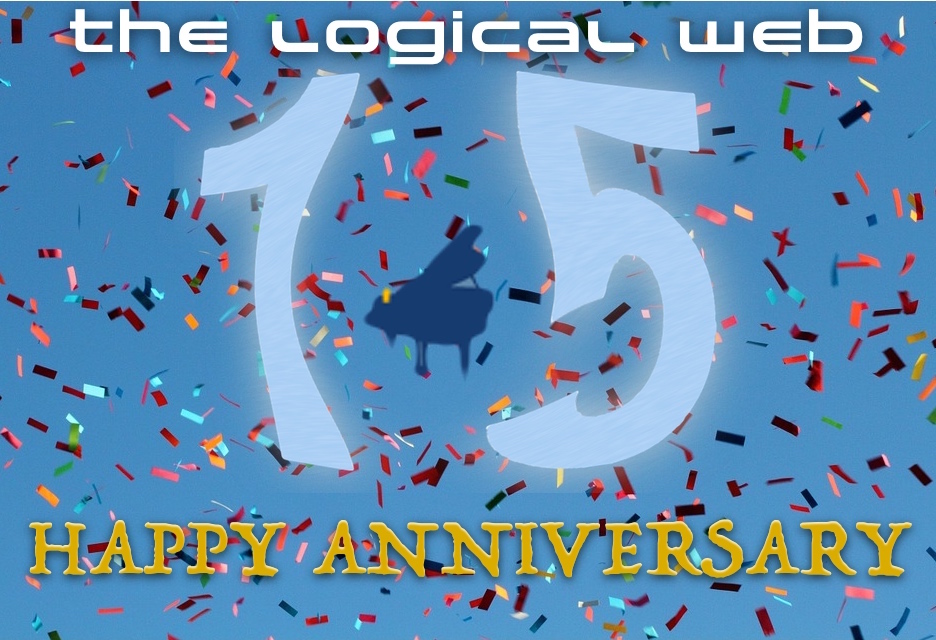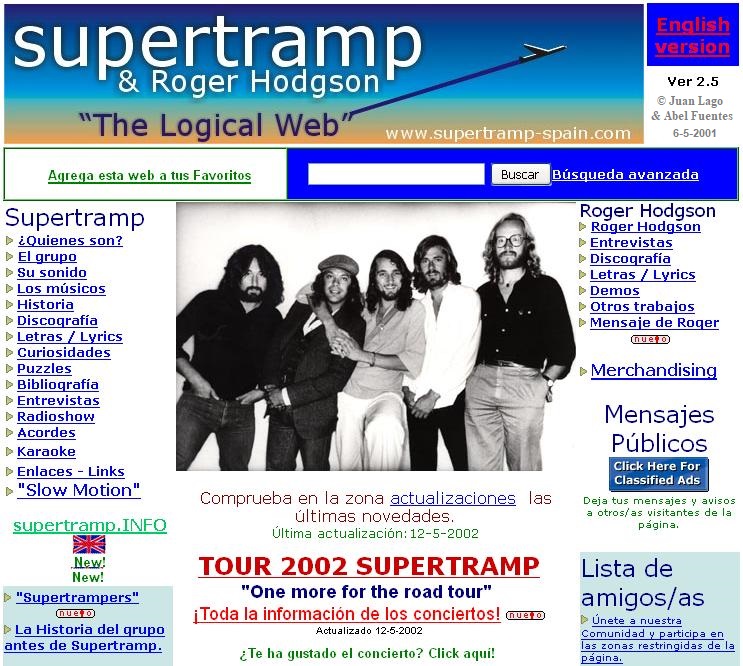Juan Lago and Abel Fuentes interviewed exclusively for THE LOGICAL WEB Wim Daans, a Belgian professional from the music business who since 2008 has been working for Roger Hodgson as a keyboard technician and production manager in all his live shows.
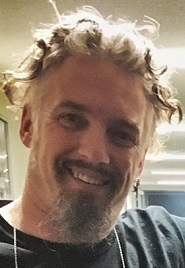
TLW: When and where were your born?
WIM: I was born on November 27th, 1967, in Antwerp, Belgium.
TLW: What were your main musical influences during your childhood? What bands were you a big fan of back then?
WIM: I grew up with new wave and synth pop. Bands like Bauhaus, The Cure, Sisters of Mercy, Depeche Mode, OMD, Soft Cell, Gary Numan, The Jesus & Mary Chain, Joy Division...
TLW: How did you start to be interested in that sort of music?
WIM: The first band that totally blew me away was probably Kraftwerk. A friend of mine played me a cassette copy of “The Robots” on his very loud stereo when I was age 14. I had never ever heard anything like it. I’ve been in love with the sound of synthesizers ever since.
TLW: Back then you played keyboards… Did you study something related to music during your early years? Did you play other instruments as well?
WIM: Believe it or not, but I’m actually a flute player. I went to the local academy between age 5 and 15. Then I got into underground music and never looked back.
TLW: How did you start to play synths music with some electronic dance music bands like Lords of Acid?
WIM: I joined my first band, The Arch, at the age of 17 as a synth player. I had just bought my first second hand keyboard (a Roland Juno 60) from what I saved on a student summer job. We got signed pretty quick and recorded and released our first 12” a year later. I played in a few other bands before I landed in Lords of Acid, which was the biggest band I ever played in. We sold over a million records and toured the US a lot. Crazy times!
TLW: In the mid-1990s you started a solo career with an ambient project called Karma de la Luna, recording two albums (“Travel Without Moving” and “A Masterplan For the Addict”)… How did you get involved in that?
WIM: My record company had just started a new ambient sub-label, Barramundi, and needed some songs for that. I was already listening to a lot of ambient, like early KLF & The Orb, Future Sound of London, Brian Eno, William Orbit, and did a lot of soundscaping in my free time, so it was really up my alley. The first song I submitted did really well, so soon I found myself making a full solo album. It felt really great to make something that was 100% me for the first time in my life.
TLW: Later on you started working on the technical aspect of music… Why did you decide to make that change in your professional career?
WIM: Around the year 2000 the record business went through a crisis. People started downloading music ilegally, there was no more money, record labels went bankrupt and recording studios closed their doors. On top of that Lords of Acid, which was run by a record company and was also my main income, didn’t get any more tour support, so there was just no more work for me as a musician. My solo work was fun but didn’t pay the bills. I’ve always been a “techy” musician, and I had always worked for other bands as a technician too. So it came pretty naturally to focus on where the jobs came in, and that was being a tech for bigger bands. Sometimes you don’t choose your own path: life chooses for you!
TLW: You started working with Roger Hodgson in 2008… How did you meet him?
WIM: I worked for “Night of the Proms” since 2001. It is a huge touring orchestral/pop production featuring different famous artists each year. I think Roger joined us on tour in 2005. He wanted to play “Fool’s Overture”, and I was asked to program the synth sounds for him. I guess he really liked what I did because the next year he asked me to join him on his duo shows. Unfortunately I was already fully booked, and it took until 2008 when our agenda’s finally matched. I’m glad we connected in the end, because it changed my life.
TLW: What did you think when Roger asked you to join him?
WIM: I was totally honoured of course. Everything I had done before had always started in my own country. Even Lords of Acid was a Belgian band going international. But now I was being asked by a legendary artist to join him for a world tour (well, it was just a few shows in the beginning). I was really really super excited. It felt like I finally made it. On top of that I really liked Roger and his music. It was like a dream come true.
TLW: Do you remember what your first concert with Roger was?
WIM: The first show was a duo show somewhere in Germany, and I honestly can’t remember much of it. But the next few shows were the first ever band shows, and they were planned in Brazil. I’ll never forget that experience. I didn’t know the new band, I had never been to South America, and I didn’t really know what my job description was apart from looking after Roger’s keys. Management sent me a plane ticket and me and the Dutch sound engineer stepped on a flight, not knowing what to expect. But it turned out to be great and we got along really well with the musicians. We did a few days of rehearsals in a recording studio and then did our first festival show with the band. It was probably a bit rough around the edges, but I think we pulled it off pretty well. From that moment on we started touring more and more, until it became a full time non-stop world-tour.
TLW: What show with Roger do you keep the best memory of?
WIM: It’s hard for me to pick out just one memorable show. Sure there were ups and downs, but mostly every show was a unique experience. You see, we travel light and don’t have a full production with us. That means we have to rely on equipment that we rent locally and work with local people every time. It’s always a challenge to get a show together in these challenging conditions, but it’s also very rewarding. In the end, no matter where we played, Roger always gave an amazing show. He has that talent to tune into a crowd and connect with people, be it an intimate 200 seater show, a big rock venue, or a crazy outdoor festival.
TLW: Going back to the European indoor festival “Night of the Proms”… How did you begin working on it?
WIM: I was working for a backline rental company when the position for a keyboard tech got offered to them. The company asked me for the job, given my expertise with both keyboards and classical music.
TLW: Is it the biggest musical event you have ever worked on?
WIM: It’s definitely the biggest touring production I’ve worked for, but I’ve also worked on even bigger non-touring productions, festivals like “Tomorrowland”, “Rock Werchter” or “Pukkelpop”.
TLW: On “Night of the Proms” you have worked with lots of famous groups and solo artists, including Roger Hodgson… Which of them are your favourite ones?
WIM: Obviously Roger is among the all time favourites, and he has joined us on many editions. Alan Parsons is also great to work with, I loved Tears for Fears, Shaggy was super cool and funny, The Jacksons just awesome, Grace Jones such a great performer, James Brown a legend, Donna Summer the disco queen (I had the honour and fun of re-programming the Giorgio Moroder Moog sequences on “I Feel Love”), my new wave heroes Simple Minds… And so many more. Honestly, I enjoy almost every artist that we welcome on tour. Hearing those old classic songs with a full orchestra and choir is just beyond amazing. It’s so good and it adds so much to the music that I’m mostly disappointed when I hear the original song again on the radio. (LAUGHS)
TLW: Apart from Roger, you have also toured with Utravox, Axelle Red, Clouseau, Lara Fabian, Krezip, Natalia, Anastacia and many other bands and artists… What of those tours are you proudest of?
WIM: That must have been Ultravox. I’ve always been a fan of Ultravox, and when I got asked for the position of keyboard tech, I landed as a sole Belgian in a full English crew. But the band and crew were just amazing people, it felt like family straight away. I’m still friends with many of them and whenever I’m in the UK or when they’re in Belgium we try to hook up. Absolutely great memories!
TLW: You have worked as a sound designer, studio producer, backline technician, playback engineer, video editor, stage/production manager and global consultant… What of all those roles do you like the most?
WIM: All of them! (LAUGHS) No, I like learning new things and take on new challenges, so that’s why I switch focus so many times. I get bored when I do the same thing for too long. That’s why touring with Roger is so great: I can take care of a lot of things at the same time. I also love being a stage manager. It puts you in the middle position between bands and their crews, promotors, technicians, stagehands … I like being the glue between all that and make sure everybody can work and play in optimal conditions.
TLW: Have you ever worked on films, television shows, theatre productions, company presentations or other events?
WIM: I was still in school when I started working for TV shows. I did all the sound cues for popular game programs like “Wheel of Fortune”. Five shows a day, live on tape! It was my first payed job actually, and as I rolled into it, I failed to finish school…. Oops! I’ve never done film and company presentations. Maybe that’s another challenge! (LAUGHS)
TLW: What equipment do you use in a show with Roger?
WIM: The main tool is a Macbook pro with Mainstage software and an RME soundcard: almost all of Roger’s sounds come out of that rig. When we started out, Roger carried two racks of MIDI outboard gear that got fed from his Triton keyboard. But most of these modules were getting old and unreliable, and it was a lot to carry around too. So I started sampling all the sounds into software and developed a back-up system that we could use in case of emergency. That emergency happened on a show in Beirut (not far from where the recent explosion happened). The local Triton didn’t work, we could not address our MIDI racks, and there was no choice but to use my Mainstage back-up system. Roger loved it so much that we’ve kept on using it ever since. It’s a lot more compact, reliable and sounds great too.
TLW: What main differences are there among a solo show, a band show and an orchestra show?
WIM: For me, there’s not that much difference between duo, band and orchestra shows from a technical point of view. For the sound engineer who’s mixing the show it’s a huge difference of course, but everything else pretty much stays the same. We have three versions of Roger’s Mainstage rig for the three types of show: a bit more bass-heavy for solo shows (because we don’t have the impact of drums and bass), the regular band show, and then a stripped down version for orchestra shows (because the orchestra takes over some of the parts). For me it’s just a matter of loading in the right session: easy!
TLW: Is it very different from the equipment you use with other artists?
WIM: On most productions I’m always that Mac guy and I use several Macbooks, RME soundcards and mostly Logic and/or Mainstage software. It’s just such a great rock solid combo and I know my way around it. It’s what I used for Ultravox too, and also for “Night of the Proms”.
TLW: Roger has always been very good working on sound, even producing some Supertramp and solo albums… Does he indicate you anytime how to do part of your work in any way?
WIM: Oh yes, he indicates what he wants all the time! (LAUGHS) He really knows what he wants and he’s a perfectionist about it as well, so he spends a lot of time tweaking until perfection and demands the same devotion from his team. It’s a quality I’ve learned to appreciate a lot. It can sometimes come across a being hard, but with Roger it’s never personal: it’s about the music and he’s equally hard on himself as on anyone else. In the end when everything comes together and we have a great show, you realise that all that hard work was worth it. And Roger may be demanding, he’s also forgiving if something goes wrong. He just accepts the simple fact that everybody is human and makes mistakes sometimes. We all aim for perfection, while at the same time we accept it’ll never be 100% perfect.
TLW: What member of Roger’s current band you get on well the most with?
WIM: David J. Carpenter is my buddy, my brother from another mother: we have special thing going and we even make some music together too. But everybody in the band is great of course. When you spend so much time on the road, you just have to get along. In a busy year I see my tour mates more than I see my family. The intensity of touring just creates a connection that will last forever. That’s why Roger spends a lot of time to select new members equally on talent as on personality.
TLW: Do you miss Aaron MacDonald and Kevin Adamson, who left the band to devote more time to their families?
WIM: Oh yes, I really do miss Kevin and Aaron a lot. They were dear friends that got ripped out of my life. That’s the tragedy of touring: you build very intense relationships, and then they stop with a bang. Thank God we have the Internet to stay in touch these days. And Ray and Michael are worthy successors.
TLW: Everybody knows that Roger as a very talented musician… What do you think of him as a person, after having worked so many years with him?
WIM: Well, as a person Roger is just a sweet old hippie soul. He’s a thinker, a seeker, and he likes to dream about a better world. He’s easy going and slightly introvert. He doesn’t have a rockstar attitude and he really appreciates simple things like a walk in the park, a look out over the clouds, a sip from his cappuccino…
TLW: How much has changed your life since you work with Roger?
WIM: I don’t think Roger himself changed my way of thinking that much (I’m a bit of an old hippie myself) but the whole experience of touring the world with this lovely bunch of people has definitely left a great impression on me. It has opened my mind and opened my world, for which I am forever grateful.
TLW: What main things you have learnt from him?
WIM: I like very much that Roger encourages you to explore. For example, when he was in need of live footage I kinda suggested to buy a Gopro and give it a try. Roger loved the idea straight away and not long after that I was carrying a full video case around, filming every show, and learning how to edit video on the go.
TLW: What projects have you been working on lately? How has affected this world pandemic to your work?
WIM: This pandemic has been hard on everybody in the music industry, and especially the lack of perspective has been tough to deal with. I put my energy mostly on my hot sauce side-business (“Happy Hatter Hot Sauce”) which has been doing pretty good while not on the road. So I’ve been mostly growing peppers and spent time in the kitchen. I don’t really know what to do with this “Happy Hatter” project when we start touring again. I guess I’ll have to scale it down again. (LAUGHS). I also have my latest solo ambient project that keeps me busy, Pulse Mandala. I just love to spend the evenings in my studio patching and tweaking modular synthesizers and come up with soundscapes from another world. That's my meditation, my way to find peace of mind in my hectic life.
TLW: To finish… How would you define yourself?
WIM: I see myself as a technical-artistic explorer, a seeker, and a human being in progress. I take pride to execute my job with great responsibility, initiative and enthusiasm, and the never-ending challenge that fast evolving technology offers me, allows me to push boundaries, think outside of the box and come up with innovative solutions. Basically I like to work with creative, friendly, down-to-earth people on exciting new projects to make interesting things happen.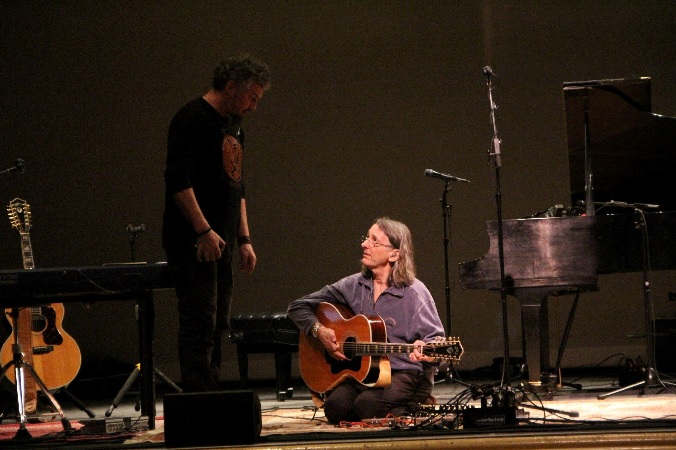
Wim talking to Roger on stage before a show.
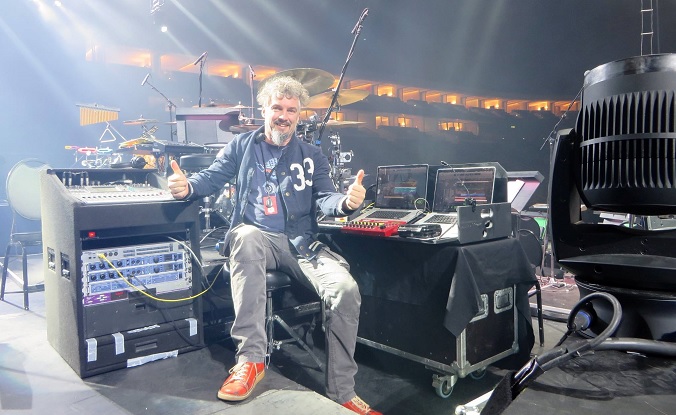
At work, in front of his usual equipment and tools.
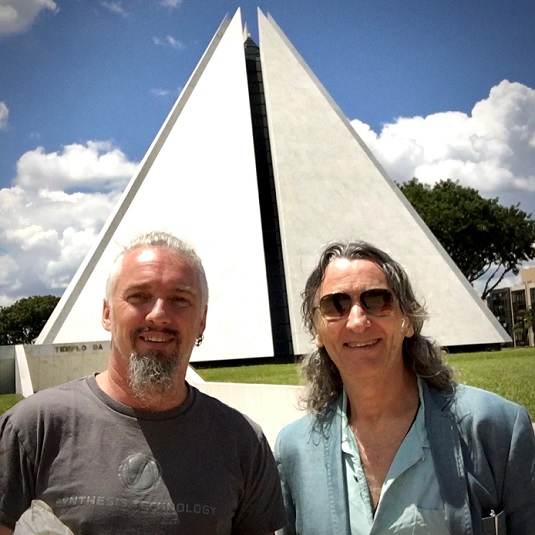

With Roger in Brasilia, visiting the Templo da Boa Vontade.

